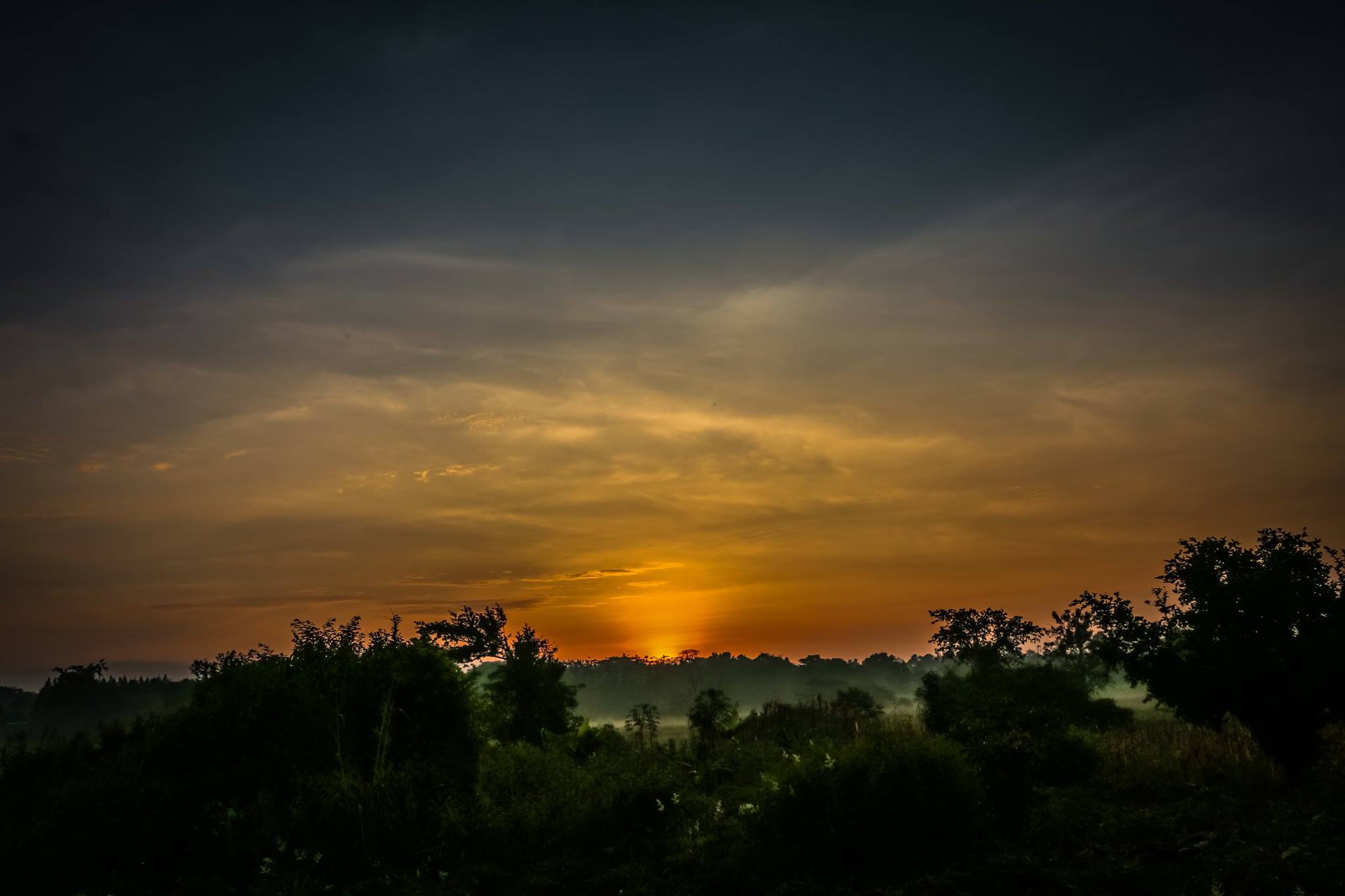Uganda - Part 1

In a jet-lagged daze between restless dream and sleepy wake, I hear the echo of a weighty key opening the lock of a heavy iron door. I sit up in bed and fumble around for my phone, trying to figure out what time it is. It’s a little past 4:00 in the morning. I push my way out of the mosquito netting enclosing the bed. Peering out the window, I see a figure entering the door of the kitchen which lies directly across the compound from our room. It’s one of the sweet ladies from the village who will be cooking for us today.
She usually is accompanied by two other young women. Every morning it’s the same ritual. They get an early start - well before sunrise - preparing breakfast for our church group from the US who has come to spend the Christmas holiday working with orphans in the Kamuli district of Uganda in this small village, about three hours outside of the capital city of Kampala.
This isn’t the first morning I’ve woken up to this scene. But this morning is different. She is by herself, and I get my nerve up to go talk to her. I rush to throw on extra layers of clothes and make my way out of the room, careful not to wake my roommates. As I cross the compound I see her pouring charcoal briquettes into a small stove. I clumsily introduce myself and ask if I can help. She laughs. She has already lit the briquettes in another small cook stove and a large aluminum kettle has been placed on top to boil water. The acrid smell of burning charcoal mixes with the cold night air.
I ask about the briquettes. She explains that they’ve purchased a large sack for our stay, but she tells me it will probably last less than a week. A sack of this size usually lasts about three weeks for an average family. The sack costs 30,000 shillings, roughly equivalent to $8.50US.
The average annual income for a family in Uganda is $1200. However for families living in rural villages, family income is significantly less. Early studies indicate a fivefold disparity. That means that for rural families, roughly 1/3 of their income might be spent on a sack of charcoal for cooking and heating.
The most striking thing about the kitchen is that, except for the entry way, there is very little ventilation. Are the tiny holes in the back wall supposed to provide cross-ventilation? Most prevalent is a thick layer of black soot covering the walls. I’m aware of the statistic about exposure to fumes – more women in this part of the world die from complications associated with toxic fumes from burning charcoal than malaria and AIDS combined - but standing in a small concrete room surrounded by walls covered in soot, I forget about the stat and think of the woman who is about to cook my breakfast.
The two other young women show up soon after and gently shoo me out of their small kitchen space. I head back to my dark room. Thankful that I haven’t woken my roomies, I duck back under my mosquito net. It will take several hours to cook breakfast for our crew. The women will chat and quietly laugh as they toil, inhaling those fumes. And I’m left feeling immensely guilty because I know the stats.
